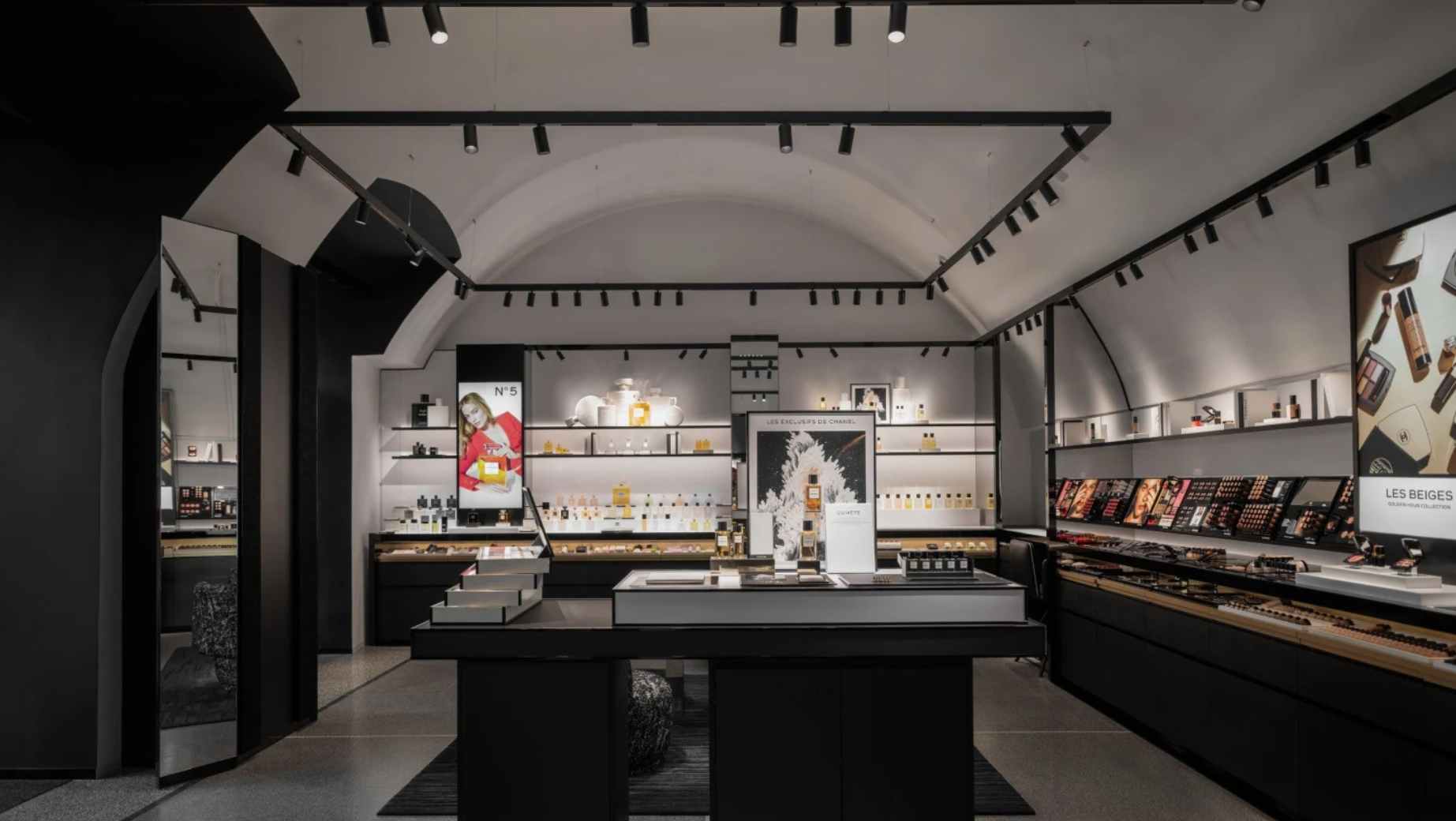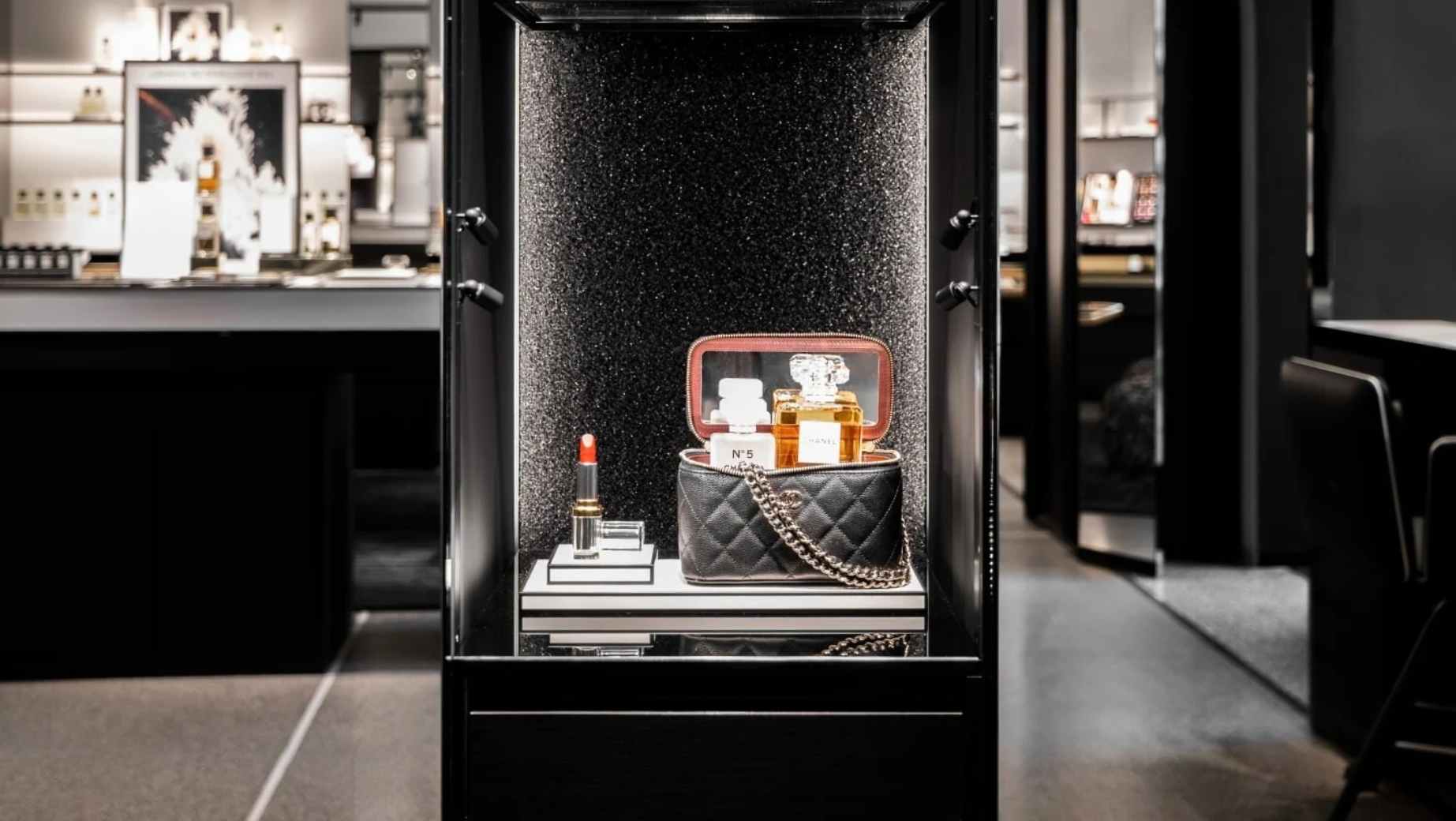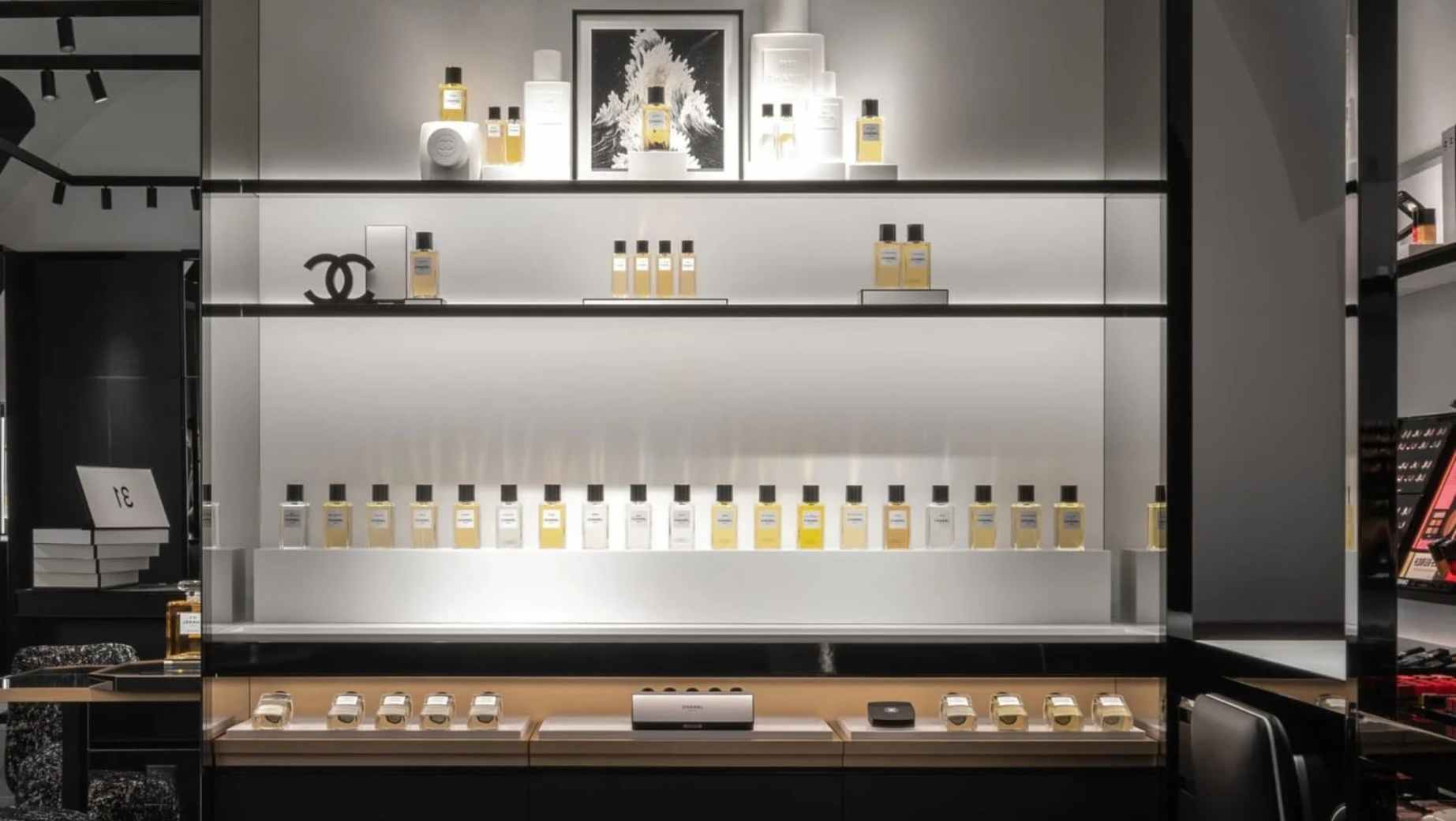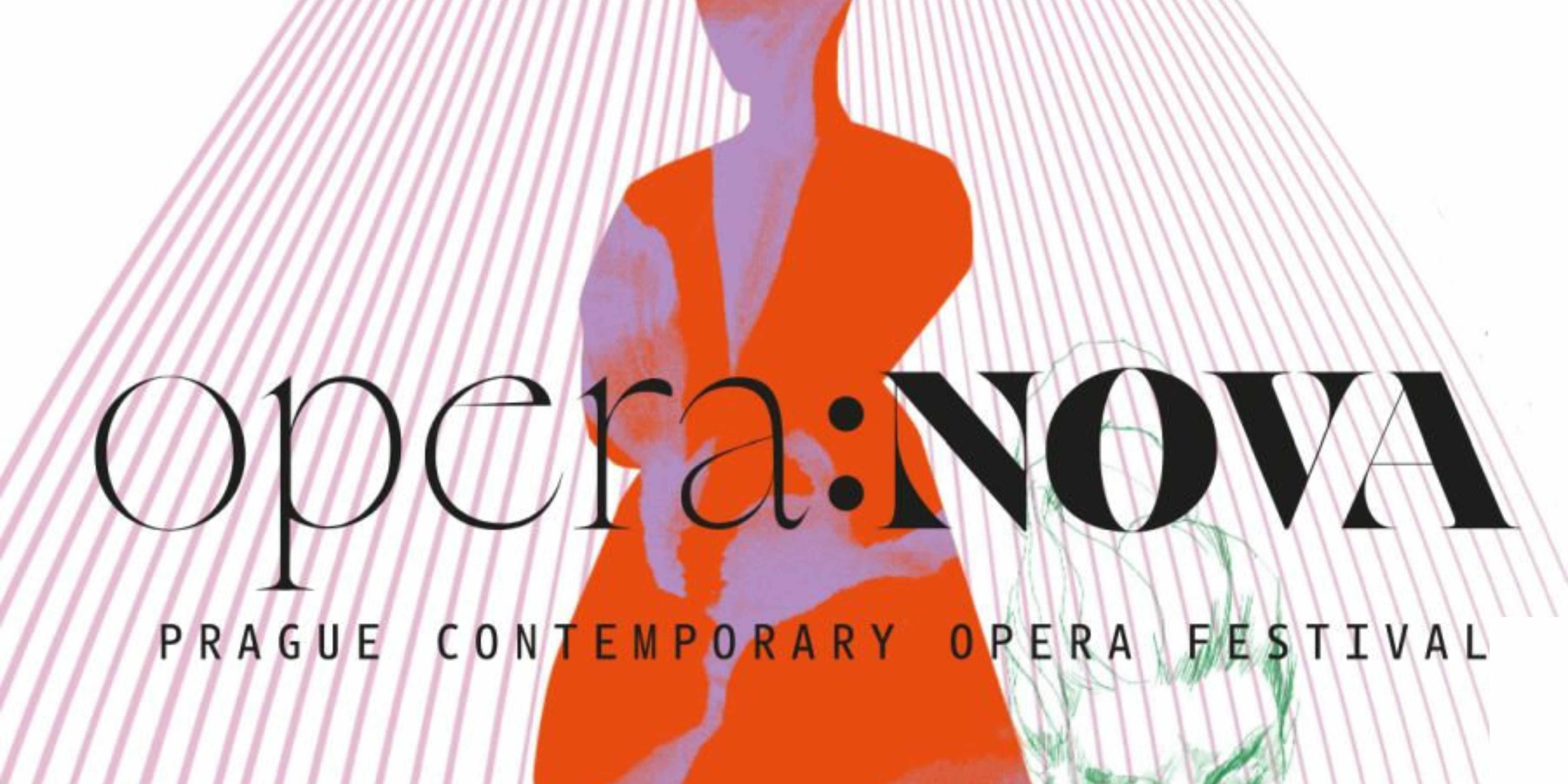French fashion powerhouse Chanel has expanded its presence in Czechia with the opening of a new boutique on Na Příkopě.
But unlike its first location in the city, this new store focuses exclusively on fragrances, skincare, and makeup.
Housed in the recently renovated Baroque Savarin Palace, the boutique opened its doors on June 17, offering not only Chanel’s full cosmetics range but also limited editions, sunglasses, small leather goods, and Les Rendez-vous Chanel—an in-store experience where clients can receive personalized makeup, hair, or fragrance consultations.
In an interview with Business of Fashion, Chanel CFO Philippe Blondiaux confirmed that standalone beauty stores are expected to become the brand’s main sales channel within a few years.
This approach allows Chanel to bypass wholesale partners and offer a more controlled, curated customer experience—one that doesn’t involve discounts or seasonal sales, unlike traditional perfumeries.
The boutique is opening just steps away from two of its major retail distributors: Sephora and Douglas, both of which carry Chanel products. Sephora’s flagship store on Na Příkopě opened exactly one year ago, further intensifying competition in the area.
The Savarin Palace, which reopened this February after years of restoration by real estate developer Crestyl, carries deep historical ties.
In the late 19th and early 20th centuries, the building housed the Ethnographic Museum, now part of the National Museum. During the First Republic, it was a prominent social club frequented by leading Czech figures including Ferdinand Peroutka, Hugo Haas, and Jan Werich.
Later, the palace became home to cultural events and even hosted the world’s first black light theatre. After the fall of communism, it was privatized and is now under Crestyl’s ownership.
Would you like us to write about your business? Find out more
The 13th edition of the Pivo na Náplavce beer festival is set to bring a wide variety of Czech craft beers to Náplavka this Friday and Saturday, June 20–21.
This popular riverside event will feature 34 microbreweries, including both established names and new participants, along with a rich food offering, a flea market for beer collectors, and live music.
The festival kicks off on Friday at 2 PM, with Saturday’s program starting at 10 AM. Both days will run until 9 PM. Entry is free, and organizers expect a strong turnout.
“This year, we’re welcoming breweries from all over the country – both returning favorites and several newcomers,” said Jiří Sedláček, festival director.
Among the fresh faces are Bročan from Jince, Pivovar Bohdaneč, Pivovar Lednice, Pivovar Pod Lípou from Kyšice, and Ruxusní Minipivovar from Telč. Returning breweries include AXIOM, MadCat, Nachmelená Opice, and Pivovar Mazák.
Guests will also be able to sample beers from small guest breweries such as Měšťanský pivovar v Poličce, Pivovar Poutník from Pelhřimov, and Pivovar Rohozec. The lineup includes traditional Czech lagers as well as a growing range of top-fermented craft styles that are now standard among local microbrewers.
To reduce plastic waste, beer will once again be served in glassware, a tradition that organizers have maintained throughout the festival’s history. “It’s not just about sustainability – beer simply tastes better in glass,” Sedláček noted.
Beyond the taps, the festival will also feature 15 food stalls catering to a variety of tastes. Expect grilled meat, Balkan specialties, Belgian fries, craft burgers, quesadillas, tacos, guacamole, bruschetta, artisanal pizza, and sausages made from traditional Přeštice pork.
The event’s live music program will include performances by Czech bands such as Asi20?!, Friday Morning, Gentleman’s Club, and Jazz Underground. International acts will include The Daltones, an American-British group, and the Cuban band Cubaché.
Participating breweries
- Axiom brewery
- Bročan
- Elektrárna
- EmBe pivovar
- Hákův parní pivovar
- Křikloun
- MadCat
- Nachmelená opice
- Pivo Sněžka
- Pivovar Bašta
- Pivovar Bohdaneč
- Pivovar Červený vlk
- Pivovar Dráteník
- Pivovar Hradecký klenot
- Pivovar Lednice
- Pivovar Louka
- Pivovar Maxmilian
- Pivovar Mazák
- Pivovar Obora
- Pivovar Ogar
- Pivovar Pod Lípou
- Pivovar Rudohor
- Pivovar Trilobit
- Pivovar Turnov
- Pivovarský dvůr Zvíkov
- Přešek / Stará škola
- Ruxusní minipivovar
- Sibeeria
- Suchdolský Jeník
- Twinberg
- Vltavotýnský pivovar
Guest breweries
- Měšťanský pivovar v Poličce
- Pivovar Poutník
- Pivovar Rohozec
Would you like us to write about your business? Find out more
The Kinsky Palace, a Baroque jewel on Prague’s Old Town Square, will close to the public this summer for an extensive year-long renovation, the National Gallery Prague (NGP) confirmed.
As a result, the iconic site will not host any exhibitions in 2025.
The reconstruction, estimated at 60 million CZK, will be funded through a subsidy from the Czech Ministry of Culture, according to NGP spokesperson Jana Holcová, speaking to ČTK.
The original plan was limited to installing a barrier-free entrance, but the project has since expanded significantly.
“The renovation will cover two entrance portals, new flooring, updated heating and electrical systems, window replacements, and a modern elevator to improve accessibility,” Holcová said. The upgrades will focus primarily on the exhibition halls on the second and third floors.
The bookstore in the palace shut down operations on June 1 to prepare for the closure. Staff and furniture will be relocated, with some employees temporarily moved to the Veletržní Palace and other gallery locations. A limited number of staff will remain on site throughout the works.
Constructed between 1755 and 1765, the Kinsky Palace—originally known as the Golz-Kinsky Palace—stands on layers of Romanesque and Gothic foundations.
Its uniform roof and sculpted façade make it one of the most recognizable buildings on Old Town Square. While initially attributed to Kilián Ignác Dientzenhofer, who died in 1751, scholars now believe the building was designed and constructed under the direction of Anselmo Lurago.
Beyond this renovation, the NGP is planning an even more ambitious investment: a new depository in Jinonice, near the Nové Butovice metro station.
With 2.2 billion CZK allocated from the Ministry of Culture, the facility will help relieve pressure on the Veletržní Palace, allowing for its future modernization. “We expect to complete the tender documentation and choose a construction contractor this year,” Holcová stated.
Meanwhile, a new permanent exhibition—Art of Asia Across Space and Time—is scheduled to open at Salmovský Palace. Originally planned for late April, the opening has been postponed to October 17 due to logistical and curatorial delays.
Would you like us to write about your business? Find out more
Traffic came to a standstill in Prague on Monday afternoon after a Przewalski’s horse broke free from its crate while en route to the airport.
The dramatic escape unfolded near the Černý Most shopping center, disrupting drivers along the Prague Ring Road and the Southern Link, especially in the direction of Novopacká Street.
According to updates shared on the X network by Prague Police and Miroslav Bobek, director of the Prague Zoo, the stallion—named Wisky—managed to burst through the transport barrier and leap from the moving vehicle.
Authorities and zoo staff quickly responded to capture the animal, eventually sedating him to prevent further danger.
“We were transferring horses to the Kbely Airport when Wisky got loose inside the crate, which then broke open,” said Bobek. “We had to chase him around the road circuit. He’s now been sedated and will be taken back to the zoo in Troja.”
As emergency teams managed the escape, traffic was temporarily restricted on key arteries leading to and from the airport. While Wisky was being brought under control, zoo officials continued with the mission to transport three other Przewalski’s horses to the airport.
The horses are part of a long-running conservation program aimed at reintroducing Przewalski’s horses into the wild. The Prague Zoo has played a leading role in these efforts, having bred the species since 1932 and maintained an international studbook since 1959.
Since 2011, the zoo has organized airlifts of horses destined for release in western Mongolia, where the animals are being gradually reintroduced to their native habitat.
— Policie ČR (@PolicieCZ) June 2, 2025
Would you like us to write about your business? Find out more
Prague has approved nearly CZK 46.5 million in funding for the preservation of historical landmarks and cultural assets, as part of a broader effort to protect the city’s heritage and support the arts.
The city council reviewed 141 applications and approved 84 projects for funding.
These include 51 immovable heritage sites, 21 church-owned properties, and 12 movable monuments. The remaining 57 applications were declined.
Among the supported projects is the Basilica of St. Peter and Paul at Vyšehrad, which will receive CZK 2.5 million towards a roof reconstruction. The overall cost of the work is estimated at CZK 9 million.
Another grant will go to the Hlahol singing association, which has been awarded more than CZK 1 million for renovations, including window replacements at its historic headquarters on Masaryk Embankment.
Looking ahead to 2026, Prague plans to invest CZK 420 million in cultural initiatives.
Part of that funding will go toward events marking the 90th anniversary of Václav Havel’s birth, with dedicated support for projects honouring the former president and playwright.
The city will also fund Prague’s participation in the Frankfurt Book Fair, one of the largest international events in the literary calendar.
Would you like us to write about your business? Find out more
On the evening of May 8, 2025, the Czech Republic will mark the anniversary of the end of the Second World War with a striking visual tribute.
President Petr Pavel will officially launch a powerful laser beam from Prague’s Žižkov Tower, sending a signal of peace into the night sky.
The laser will be activated shortly after 10 p.m. and will be visible across much of the city and its outskirts. Organizers say the beam is intended as a reminder of the devastating consequences of global conflict and as a symbol of the continued commitment to peace in Europe.
The display also serves as a tribute to those who suffered and died during the war and as a warning against the repetition of history’s darkest chapters.
The best way to see the laser is from places that offer a clear, wide view of the Žižkov Tower. Ideal spots include Petřín Park, Letná, Hradčany, and Vítkov Hill, along with other high points across the city where the entire tower is visible from top to base.
In addition to the laser tribute, a week-long commemorative program will take place at the Žižkov Tower from May 8 to May 18. Visitors will have the opportunity to take part in guided tours that explore the tower’s history and significance. Tours will be conducted daily in Czech at 10:00, 13:00, 15:00, and 16:00, and in English at 11:00, 14:00, and 17:00.
To mark the occasion, the tower’s Oblaca bar and Miminoo restaurant will offer a special anniversary menu, including themed cocktails crafted for the event.
The aim is to blend remembrance with a sense of shared experience, using the city’s most recognizable landmark as a focal point for both reflection and community gathering.
Would you like us to write about your business? Find out more
For one weekend only, the Czech Republic will open the gates to nearly 300 gardens and parks, many of which are normally closed to the public.
The popular Open Gardens Weekend 2025 returns on Saturday and Sunday, June 7–8, offering a rare opportunity to explore hidden green spaces across the country.
Visitors can access a wide range of sites—from historical gardens and botanical collections to orchards, monasteries, and even old cemeteries. Each participating location offers something unique, whether it’s architectural value, ecological innovation, or a fascinating backstory.
Not all gardens offer free entry, and some require advance booking or have limited access. Visitors are strongly encouraged to check details in advance for each location on the official website: www.vikendotevrenychzahrad.cz
The event originated in the United Kingdom in 1998, under the name Open Garden & Squares Weekend, and has since inspired similar events across Europe. The Czech edition aims to raise public awareness about landscape design, gardening, and the cultural role of public green spaces.
“We want to broaden the public’s understanding of gardens, parks, and public spaces, and present them with the stories and secrets behind each place,” the organizers said. “Every garden that participates brings something exceptional—whether it’s a dendrological collection, unusual design, or deep-rooted local history.”
From urban oases in Prague to historic arboretums in South Moravia, the event offers a once-a-year chance to experience the rich variety of Czech landscape architecture. It’s not only about aesthetics—it’s a cultural invitation to reconnect with nature, heritage, and the unseen layers of our cities.
Participating sites include public parks, private estates, school gardens, and even historical cemeteries. Many will also offer guided tours, lectures, or accompanying programs, making the weekend both educational and engaging for all ages.
Would you like us to write about your business? Find out more
A new exhibition space, Kodl Contemporary, is set to open in Prague by the end of 2025.
The three-story glass gallery will be located on Dvořákovo nábřeží, near the newly renovated Fairmont Golden Prague Hotel—formerly the InterContinental Hotel.
The concept behind the gallery comes from Jakub Kodl, the youngest member of the well-known Czech art collector family behind the Galerie Kodl auction house.
Kodl selected a glass cube design to maximize the impact of natural light on the exhibited works, enhancing the visual experience for visitors.
While an exact opening date has not yet been confirmed, final construction and interior works are currently underway.
The mission of Kodl Contemporary is clear: to showcase contemporary Czech art to an international audience, boost its prestige, and increase the market value of individual artists’ works.
“To realize this vision, we are establishing partnerships with renowned international galleries, leading curators, and top artists, creating new opportunities for cultural exchange,” said Tereza Kaslová, head of communications, on the gallery’s official website.
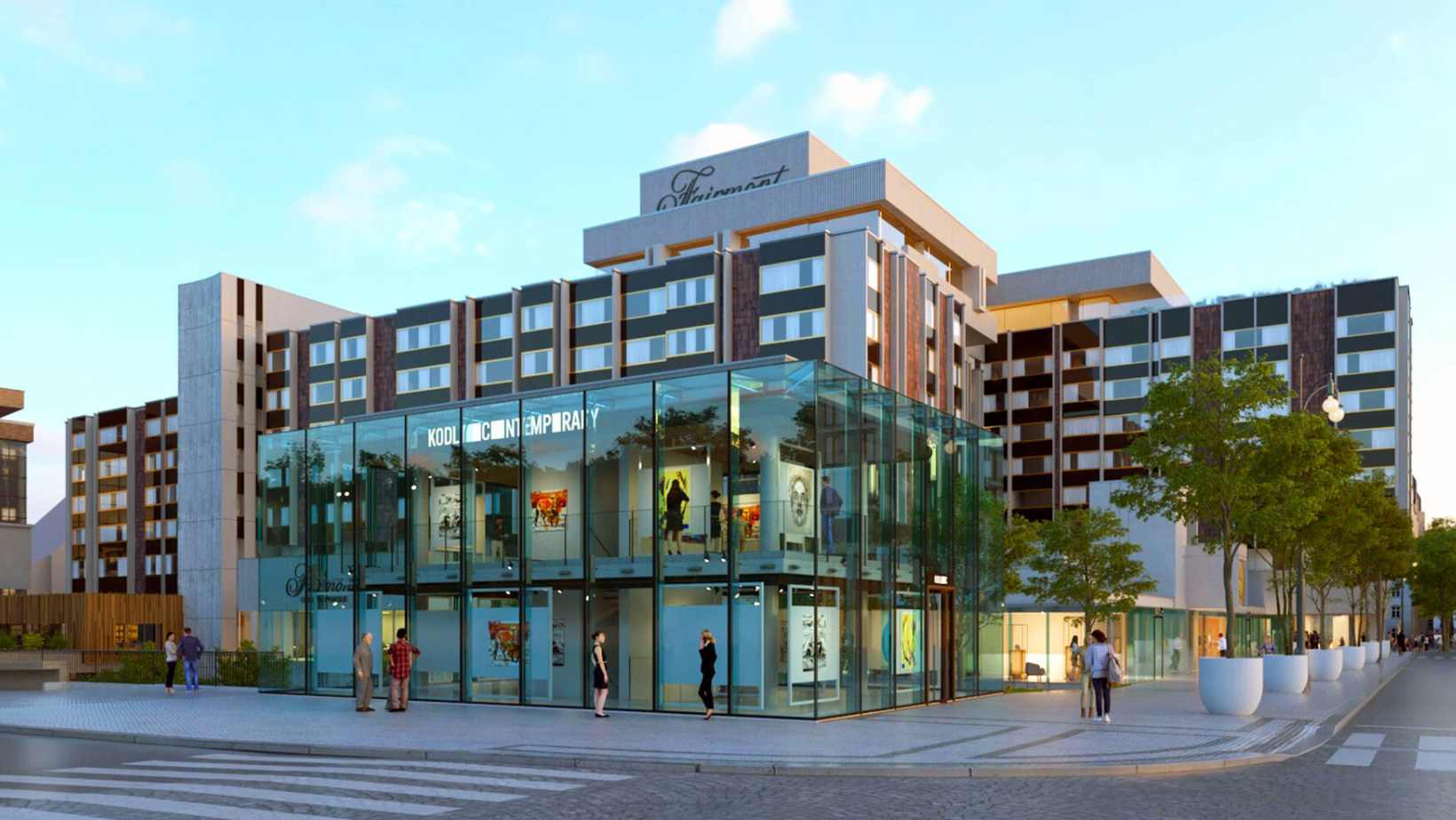
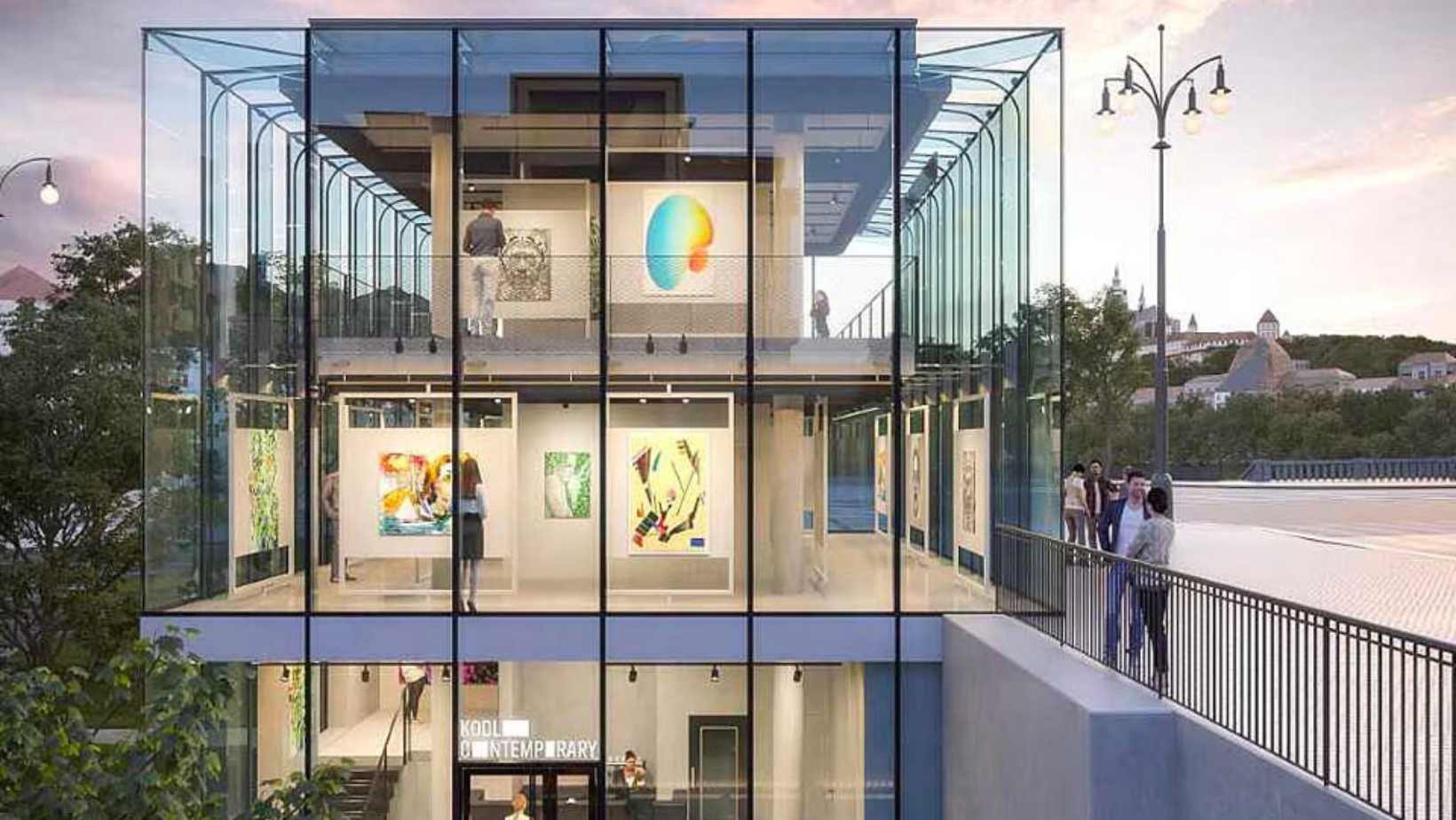
Would you like us to write about your business? Find out more
A new mural featuring Václav Havel now brightens the underpass of Prague’s Budějovická metro station, transforming the space into a tribute to the late president’s ideals of truth and love.
The location previously featured an aging mural with the Prague astronomical clock and other city landmarks, but over time, it faded and lost its appeal. Michková felt it was time for something new.
“I spent nearly nine months browsing Instagram, searching for the right concept,” she said. “But nothing clicked — until Original Seok reached out with his proposal. I immediately knew this was it and gave him full creative freedom.”

The result is a powerful portrait of Václav Havel, portrayed with a youthful expression, emerging from a wash of color and texture. It’s more than a mural — it’s a statement.
Michková emphasized that street art has long played a role in the cultural identity of Prague 4. “I want to expand the number of legal graffiti zones throughout the district,” she said, highlighting her ongoing commitment to accessible and lawful artistic expression.
She also hopes to collaborate with Dream Colours on future projects — not just in beautifying public spaces but in outreach aimed at youth who might otherwise tag illegally. “We’d like to engage young people who spray for the wrong reasons and show them how their skills can be used to enrich the city instead.”
Would you like us to write about your business? Find out more
All Souls’ Day – the day of remembrance for friends and loved ones who have passed away – has great significance in the Czech Republic.
Dušičky – or “Little Souls” – as it is called in Czech is an annual pilgrimage that has taken place since pagan times.
The official Czech name is Památka zesnulých (“a remembrance of those who have passed”), but everyone calls the day dušičky (“little souls”) or všech svatých (“of all saints”).
Activities of the day include attending church services and lighting candles on the graves of the dead and those we remember. Czechs will lay wreaths and flowers at the grave and spend time honoring those who have passed with remembering.
If you visit a cemetery in the Czech Republic during this time, you will immediately note the flickering glow of hundreds of freshly lit candles making the entire area aglow in a very holy way.
You can visit the biggest graveyard in Prague – Olšany Cemetery (Olšanské hřbitovy in Czech). Here are some images of what a Czech All Soul’s Day looks like.
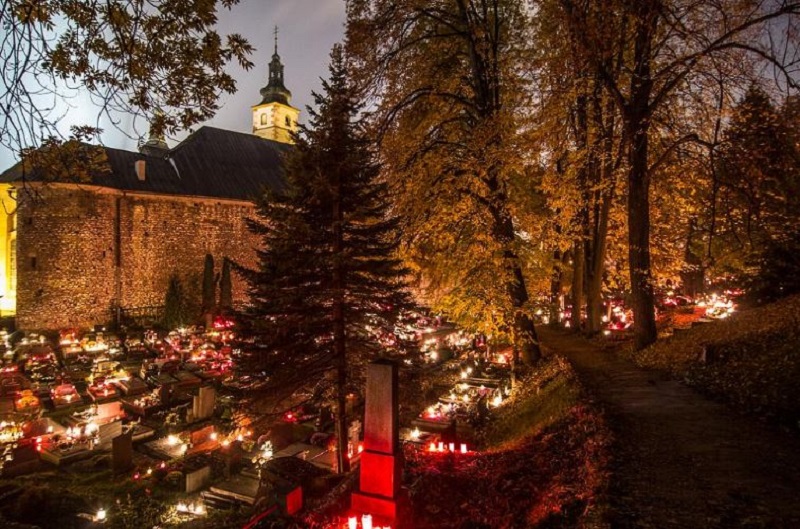
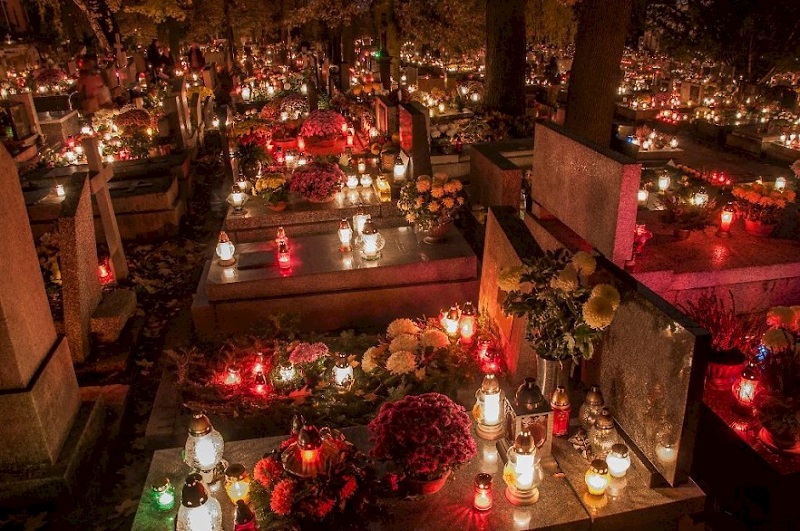
The November 2nd tradition
The tradition of visiting cemeteries on November 2 hails from the 10th century, when, during 998, Abbot Odilo of Cluny, France, made that specific day the official time to pay respects to those who need to be purged of their minor sins. In the beginning, feasts were held in local Benedictine monasteries.
Then Carthusians joined in. By the end of the 10th century, though, the tradition had spread throughout the Catholic Church. Thanks to Pope Benedict XV, from 1915 priests have been allowed to celebrate three Masses on this holy day – one focusing on the deceased, another concerning the priest’s intentions and the third dealing with the intentions of the Holy Father.
Before Abbot Odilo’s decision
But praying for the purification of souls was not always held in November. Before Abbot Odilo’s decision, it was celebrated during the Easter period. In the 10th century, the day of remembrance was moved to October.
Eastern Orthodox Churches
Eastern Orthodox Churches still honor their dead around Pentecost Sunday and have several such holy days throughout the year. For Eastern Orthodox and Eastern Catholic Christians, most All Souls’ Day celebrations take place on Saturdays because that was the day Jesus lay in the Tomb.
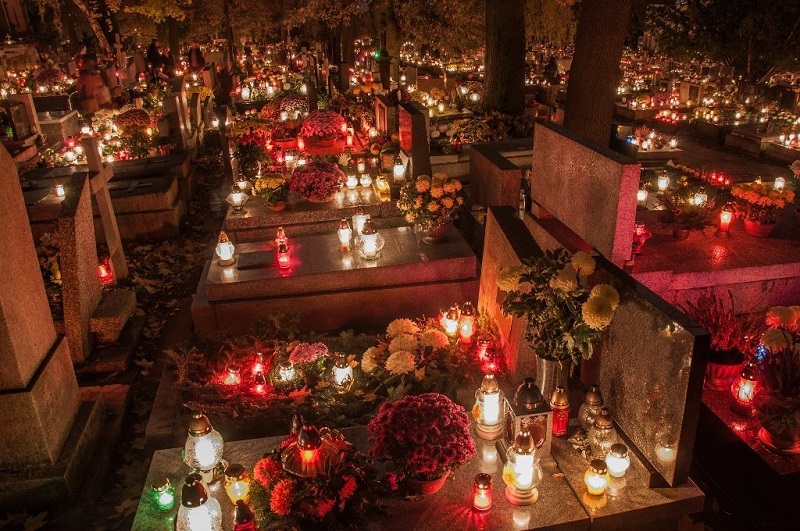
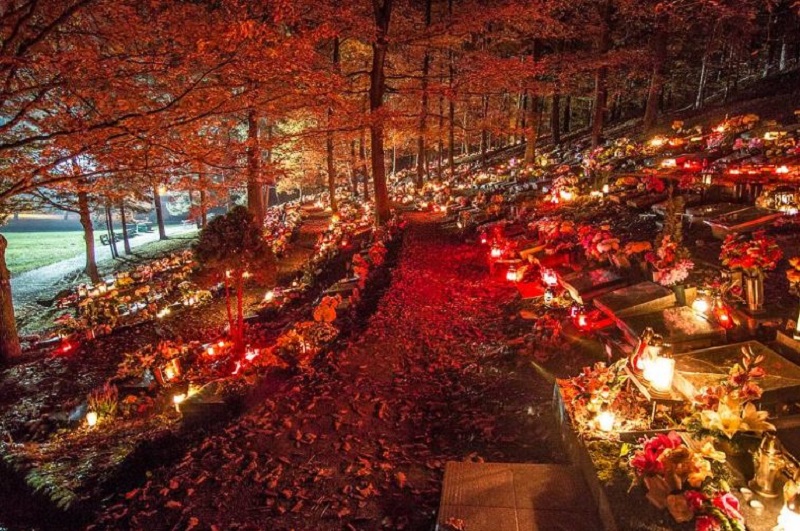
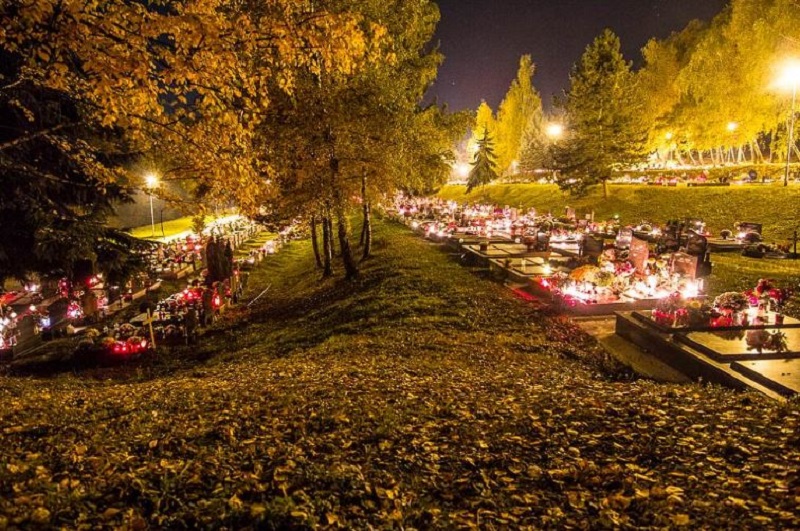
On the first Saturday of August, Kramář Villa in Hradčany will be open to the public.
Built between 1911 and 1914 by Karel Kramář, a politician and the future first Czechoslovak prime minister, it is considered to be one of the most imposing examples of Prague villa architecture.
Since 1998, the villa, with its unique interiors and surrounding French-style gardens, has been the official residence of the Prime Minister of the Czech Republic.
The villa covers over 700 square meters and offers a unique view of the Vltava River and the Prague bridges, as well as the Prime Minister’s study.
Guided tours will start from the villa gate, with the first group at 9 am and the last at 4 pm.
Another notable neo-Baroque building, the Straka Academy, will open its garden every Saturday from 10 am to 6 pm. Since the summer holiday season began, the garden has featured an outdoor photo exhibition marking the 20th anniversary of the Czech Republic’s accession to the European Union.
The exhibition chronicles the Czech Republic’s journey to the EU from the early 1990s to the present day, highlighting the evolution of both the EU and the Czech Republic.
Next week, visitors can also explore the Benešov Villa, located just an hour’s drive from the city center. In addition to its architecture, the villa offers a glimpse into the personal lives of its former owners.
For example, Hana Benešová’s silk dressing gown, which was likely seen only by her maid and her husband during her lifetime, will be displayed. Hana Benešová, wife of Edvard Beneš, the second Czechoslovak president, was known for her impeccable style, even at home.
Enjoy a weekend of exploring these historic gems and immerse yourself in the rich history of the Czech Republic.
Would you like us to write about your business? Find out more
Musician Bruce Springsteen was supposed to perform in Prague on Tuesday, May 28, but due to vocal cord issues, he had to postpone the concert.
Fortunately, he will not disappoint his fans and will come to the capital with his show on Sunday, June 15, next year.
Organizers have confirmed that the original tickets are valid for the new date, with no need for exchanges. Ticket refunds are available for the next three months, until September 3, 2024.
Springsteen is one of the world’s best-selling artists, with over 140 million records sold worldwide, including more than 70 million in the United States.
His tour last year was a massive success, selling more than 1.6 million tickets for the European leg and earning universal acclaim as one of the band’s best performances.
The tour, which kicked off this past May, saw Springsteen hit the road with The E Street Band. The American music icon visited the UK first, then Ireland and France, and was due to continue to the Czech Republic, which was unfortunately delayed due to his vocal cord issues.
Springsteen has won numerous awards in his career, including 20 Grammys, an Oscar, two Golden Globes, and a special Tony Award. He was inducted into the Rock and Roll Hall of Fame in 1999, followed by The E Street Band in 2014. They were also inducted into the Songwriters Hall of Fame.
In 2013, he received the Kennedy Center Honors, and in 2016, President Barack Obama awarded him the Presidential Medal of Freedom, the highest civilian award in the United States. President Joe Biden also honored Springsteen with the 2021 National Medal of Arts at the White House in 2023.
According to Pollstar magazine, Springsteen is one of only four artists to have sold more than 20 million tickets since 1980.

